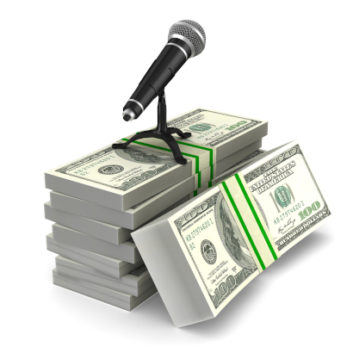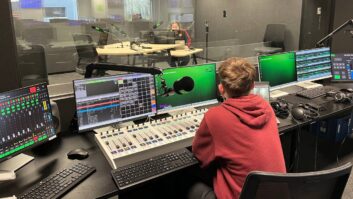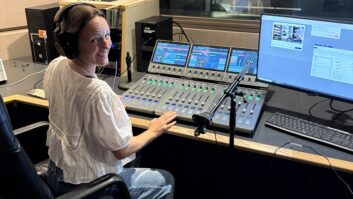 The author is executive director of the National Federation of Community Broadcasters. NFCB commentaries are featured regularly at www.radioworld.com.
The author is executive director of the National Federation of Community Broadcasters. NFCB commentaries are featured regularly at www.radioworld.com.
SoundCloud has announced a new funding model for musicians on its service. What does it mean for the wider world of music royalties?
On March 2 SoundCloud introduced the program it calls fan-powered royalties. Through this initiative, SoundCloud says it will pay musical performers posting tracks on its service based on the number of plays by listeners. The announcement is thin on specifics. For example, the rates artists will get and how SoundCloud will halt the market in purchased plays are not detailed. However, the proposal has kicked off a fresh debate on the nature of music royalties.
[Read: Community Broadcaster: Things Fall Apart]
Most audiences presume that an artist gets some amount of money when their music is streamed or broadcast. Radio stations know that music royalties are a byzantine subject. There are terrestrial and streaming platforms to be covered separately by fees; performance and composition delineations; and categories such as mechanical licensing. Then there are the various competing organizations representing songwriters and other creatives wanting their voices heard. The result is a system where many artists believe they get little compensation. The current schema has been decried by groups like the Future of Music Coalition as needing greater attention from lawmakers, broadcasters and the music industry.
How radical or bold the SoundCloud approach is depends on who you ask.
Calling this campaign “royalties” is a bit of a misnomer. The audience-funded endeavor is not a challenge to the current royalties arrangement. SoundCloud is not introducing artist representation for payment like SESAC, ASCAP and BMI, where songwriters’ rights to payment are advocated for and upheld for families of deceased performers. Nor is its program really a replacement for the royalty model. In fact, SoundCloud will presumably continue to contribute to the existing music payment framework because it has to do so legally, meaning the artists in its audience-driven program will also see monies from the existing royalties paradigm.
What it is offering, though, is a crowdfunding hybrid — an OnlyFans for musical performers, if you will, where artists are paid by content consumption. If you’re an artist getting 5,000 streaming plays per month, the check you’d normally receive might be no more than a few dollars annually. Depending on the details of the SoundCloud deal, such an artist could stand to earn more. Unlike other platforms, which have largely not budged from their payment obligations, SoundCloud’s experiment seems more equitable. A lingering question of what this means for mega-artists that also have SoundCloud channels and how they’ll be compensated under the new plan.
Community radio in particular has had its own contentions with the current royalties, especially in how local, independent performers are supported. Ongoing negotiations seem to indicate change will be hard. Still, many of us in radio may be watching SoundCloud’s development in May, when the first payments to artists are expected to be delivered.







